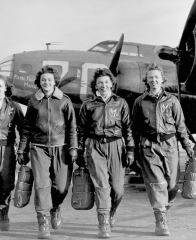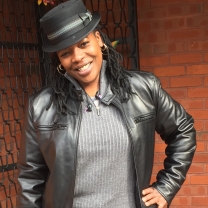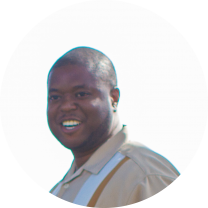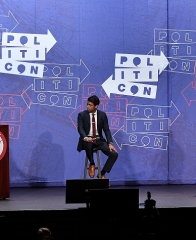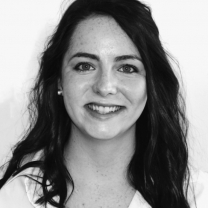 / Make Education Inclusive for Veterans
Subscribe
/ Make Education Inclusive for Veterans
Subscribe
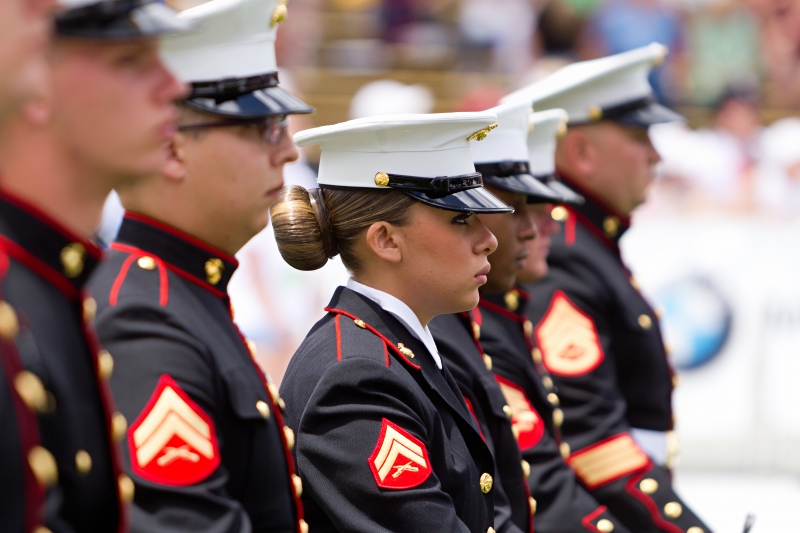
Never in a million years did I think I would attend a college like Wellesley. I came from a military family that made it clear they lacked any resources to help me attend college. When a recruiter came to my chemistry class promising a $23,000 bonus and free college tuition in exchange for six years of my life in the U.S. Navy, I didn’t hesitate to enlist.
In 2016, as I was preparing to leave the service, a colleague whose sisters had attended Wellesley strongly urged me to apply. I had not even heard of Wellesley, and had never imagined attending an elite college after my service. Enlisted service members have little access to information about college education. Because so many for-profit institutions target veterans there are now laws preventing college recruitment on military bases. Any information service members have about colleges comes from personal experience or word-of-mouth, and elite private institutions often seem out of reach to most veterans. In 2017, there were 900,000 veterans using the post-9/11 GI Bill and Yellow Ribbon program to fund their education. Of these, only 722 are enrolled at elite private institutions. Harvard University enrolls six veterans at its college. Williams enrolls five. This year, two veterans—including me—attend Wellesley. When I was accepted, it felt like a dream.
I am grateful to be at Wellesley College. But Wellesley has not made the path easy for veterans. Applying and enrolling was an intimidating process. I am the first veteran to use the Chapter 33 GI Bill at Wellesley and, when I applied, I found that financial services lacked both the resources and the knowledge to efficiently process my aid package. I had to appeal my award and speak with administrators several times, while also having to manage the mandatory trainings and paperwork needed to leave the Navy. When I applied I found out that I had to commit to Wellesley before I had my correct financial aid package. This meant turning down offers from other schools, including another private university with a $25,000 per year Yellow Ribbon program (a program meant to help veterans afford tuition higher than the almost $23,000 per year maximum the GI Bill will pay for). This would have allowed me to attend another institution for free, while my pending Wellesley aid package stated I would need to take out student loans.
After a lot of reflection, I decided to enroll at Wellesley, even if that meant going into debt. I couldn’t help but feel like Wellesley needed to be my choice. Like all of the students who attend Wellesley College, I wanted to be at a school whose mission it is to educate and empower women who will make a difference in the world. But Wellesley could do more to make its education accessible to veterans. Public universities provide free education to veterans, and several of Wellesley’s own peers, including Brown, Stanford, Columbia, Smith, and Mt. Holyoke, have substantially higher Yellow Ribbon funding available for veterans, and have recently sought to increase the numbers of veterans attending their institutions. All of this, of course, requires resources, and those are not always at hand.
But there are also a number of relatively inexpensive steps Wellesley could take to help veterans join its college community. To begin with, Wellesley could recruit more veterans. Three of Wellesley’s peers—Vassar, Dartmouth, and Wesleyan—have joined the Posse Foundation veterans’ program, which commits these institutions, each year, to admitting a cohort of 10 veterans who the Posse Foundation has identified as having exemplary character and academic promise. Vassar College now counts 32 veterans among its students. Just down the road, Boston’s Bunker Hill Community College enrolls 400 veterans. Here, Wellesley could seek out veterans who would make outstanding transfer students.
Second, Wellesley College could do more to make the transition to college easier for veterans. Veterans struggle to find information about their academic benefits, and most of this important information is supplied by academic institutions and not the VA. Putting information online, as Cornell University has done, to explain how the GI Bill and VA benefits are applied to Wellesley tuition, would be an easy first step. Finally, Wellesley could also establish points of contact for veterans, including dedicated academic advisors, or a support group on campus that can help them transition. Transitioning out of the service is notoriously jarring, and it can be isolating as veterans adjust to a new way of life after going through unique experiences many civilians might never have.
Veterans would gain so much from a Wellesley education. And Wellesley could benefit from veterans as well. The military offers Wellesley with a diverse student population: racial and ethnic minority groups now make up 40% of the Defense Department active-duty military. Women in the military have developed resiliency, patience, and professionalism, not simply because they have served, but because they have so often had to adapt to a hostile work environment, one that has historically been unfriendly to women and other marginalized groups. But perhaps most of all the presence of veterans on this campus would humanize us, and allow us to bring our experiences to the campus community. The United States has been at war for eighteen years, and yet most of our institutions of higher education remain too distant from these conflicts. If Wellesley hopes to turn its students into engaged global citizens, then bringing veterans into its community isn’t simply desirable; it is essential.
Ashley Anderson is a U.S. military veteran who served for six years as an enlisted Nuclear Electronics Technician. She is currently a Wellesley College student with an interest in anthropology and political science, seeking to understand and improve the role of veterans in higher education.
Image Credit: Infinite_Eye. BOULDER, CO - May 25th, 2015 - US Military service men and women stand in formation for the national anthem during the Bolder Boulder 10K Memorial Day service at Colorado University's Folsom Field. Shutterstock. Web. 12 June 2018.


